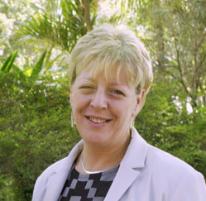Rockhampton gets slice of $800m language study boon
Published on 14 July, 2003
Rockhampton can benefit greatly from the English language study phenomenon, which contributes more than $800 million to the Australian economy each year.
That is according to English Australia executive director Sue Blundell, who will visit the Language Centre at Central Queensland University Rockhampton on Thursday, July 17.
English Australia is the national English language industry association and peak body for accredited and registered ELICOS (English Language Intensive Courses for Overseas Students) colleges in Australia.
 Ms Blundell said $800m was injected into the Australian economy in 2002 through enrolments and additional spending by students at English language colleges around Australia.
Ms Blundell said $800m was injected into the Australian economy in 2002 through enrolments and additional spending by students at English language colleges around Australia.
"For many of these students, learning English skills will only be the first stage of their academic endeavours before progressing to other studies in Australia," she said.
"Over 150,000 student visas were issued in 2002 across all education sectors, including over 20,000 issued for English Language Intensive Courses for Overseas Students (ELICOS).
"The ELICOS sector’s peak organisational body, English Australia (EA) estimates another 40,000 students study English while on a tourist or working holiday visa. About another 20,000 students study English in preparation for further study and gain a visa via another education sector.
“The demand from potential students – and the related economic benefits for Australia – is enormous.".
Ms Blundell said Rockhampton could benefit greatly from the English language study-tourism phenomenon as well as from the English language students preparing for study at CQU. She said holiday study tours provided an important boost to the tourism industry.
“These programs create a positive first impression of Australia by offering students a diverse range of experiences and encouraging their return to pursue long-term education," she said.
“English language colleges attract tens of thousands of students each year and our research shows English language students spend more per capita than many other types of tourist. They create long-term jobs in regional Australia, bring family and friends to visit, and are also more likely to return for subsequent visits.
"After completing studies that have English language skills at their foundation, the vast majority of students will return home. They return to their homelands proficient in the English language and with qualifications in their other fields of study. Of course they also take away a better understanding of, and a loyalty to, Australia – something of enormous potential benefit to the nation in terms of global business and trade networks.
"Australia is ideally positioned in the global English language market. Thanks to its attractiveness as a diverse, safe and affordable destination, and the excellent reputation of its education programs, Australia is a great place for overseas students.” .
Facts and Figures: .
7 English Australia has 71 public and private sector member colleges with 86 centres located in capital and regional cities in ACT, NSW, NT, QLD, VIC & WA.
7 Approximately 75% of international students who come to study English in Australia study at English Australia member colleges.
7 In 2002 it is estimated that there were approximately 80,000 international students in the ELICOS sector. These students include student visa holders, tourist visa holders and working holiday visa holder. 7 The economic impact of the ELICOS sector in 2002 was over $800 million.
7 The economic impact of international education across all education sectors in 2002 was over $4.2 billion.

